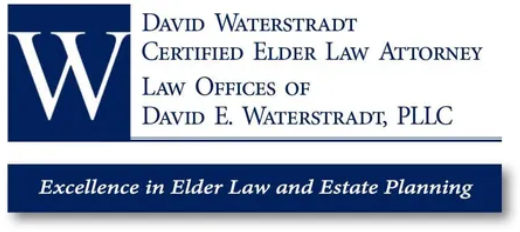Veteran's Benefits Attorney in Muskegon, MI
Over 30 Years of Experience in Veteran's Law in West Michigan!
What Is Aid And Attendance?
Aid and Attendance (“A&A”) is a monthly pension benefit available to qualifying veterans and surviving spouses of qualifying veterans who need the aid of attendance of another person to perform the personal function required for daily living such as to eat, bathe, dress, undress and administer medication. The following are the maximum monthly A&A amounts, currently available (as of 2025):
Married Couple: $3,740
Both are Veterans who need A&A
Veteran and Spouse or Dependent: $2,795
Single Veteran: $2,538
Surviving Spouse of Veteran: $1,515
Who Qualifies for Aid and Attendance?
There are several requirements to qualify for the A&A benefit from the U.S Department of Veterans Affairs (commonly referred to as the “VA”). These include a service requirement, disability requirement, asset requirement and income requirement. You must prove that you satisfy these requirements by completing the Veterans Application for Pension or Compensation (“Application”) and filing this Application with the VA.
Disability Requirement
To satisfy the A&A disability requirement, you must be 65 or older and require the aid and attendance of another person to perform the personal functions required for daily living. Examples include the inability to dress or undress, keep oneself clean and presentable, the inability to feed oneself, and the inability to toilet. Other qualifying needs include being blind, nearly blind, or bedridden.
Help with these needs may be provided by an assisted living facility, home health aides, nurses and other professionals or a family member than a spouse, or someone residing with you.
The care services provided must be recommended by a licensed health care professional.
The VA also requires that there be a Care Contract between the caregiver and the person receiving care. The contract needs to specify the care to be given and the amount to be paid, which must be the going rate for those kinds of services in the community in which the services are provided. We can prepare a Care Contract for you to satisfy the requirement.
Service Requirement - Must Have Served During War Time
In order to be eligible for A&A, a Veteran does not need to have served overseas, been in combat or have a service-connected disability. However, a Veteran must be honorably discharged and must have served 90 days of active duty with at least one day during a period of War. A surviving spouse of a Veteran who meets these requirements may also be eligible.
The Official Declared War Time dates as Determined by Congress are as Follows:
World War II:
December 7, 1941 - December 31, 1946
Vietnam War:
August 5, 1964 - May 7, 1975
Begin February 28 1961 if you served in Vietnam
Korean War:
June 27, 1950 - January 31, 1955
Persian Gulf War:
August 2, 1990 - Date not yet determined
Useful Info For Veteran's Benefits
What Are The Income and Asset Requirements?
There are income and asset requirements to receive A&A. The test for assets is whether it is reasonable that some of the veteran’s estate be consumed to pay for care. In order to receive the maximum pension amount, the income test requires the veteran to have zero income or to be spending all monthly income on care costs.
The asset test was changed in 2018. To qualify, a veteran must have countable assets of less than $130,773. However, this figure includes the veteran's income in the current year. Certain assets, such as a home and an automobile, are exempt and do not count toward the total countable assets.
What Can I Do If My Assets Exceed Asset Requirements?
Also starting in 2018, the VA has imposed a 3 year look back on gifts . In other words, veterans may be disqualified from receiving benefits if they made gifts within 3 years of applying for benefits. If your assets exceed the limit but not by much, there are some planning opportunities that will allow you to qualify for benefits in the near future. If your assets significantly exceed the limit, it may now take planning many years in advance to qualify for benefits. If you are thinking of gifting assets to position yourself to qualify for benefits down the road, it is not recommended that you simply gift your assets outright. First, it exposes your assets to your beneficiaries’ creditors. Second, you may need to “undo” the gift. If your care needs advance and you later need nursing home care, it may become necessary to qualify for Medicaid. To qualify for Medicaid, your beneficiaries may need to return the gift to cancel Medicaid’s gifting penalties. An individual who receives an outright gift may be unable or unwilling to return the gift. In order to avoid these potential problems, we recommend that you gift your assets to an Irrevocable Trust. An Irrevocable Trust must meet specific requirement to not be countable for VA benefit purposes. We can create this trust for you with terms that mirror your estate plan and preserve your ability to later receive Medicaid benefits if necessary.
Filing A Claim For A&A
Filing a claim for A&A is complex and time consuming, Typically, qualification for A&A involves the reallocation of assets, which will impact Medicaid eligibility. This process should not be attempted without proper legal advice. It may take several months for an A&A Application to be approved by the VA; however, the benefits are paid retroactive to the month following the month in which the Application was filed.

